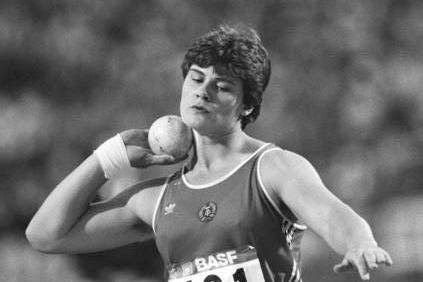Table of Contents
Who is Andreas Krieger?
Andreas Krieger, a former German shot putter, was born on July 20, 1965, in East Berlin. He is renowned for his time on the women’s East German athletics team at SC Dynamo Berlin, where he competed under his birth name, Heidi Krieger. Krieger’s life took a dramatic turn when he unknowingly became a victim of the East German government’s systematic doping program. The anabolic steroids, disguised as “vitamins,” led to significant physical changes including a deepened voice, increased muscularity, and cessation of his menstrual cycle. These profound alterations ultimately contributed to Krieger’s decision to undergo sex reassignment surgery and live his life as a man.
What made Andreas Krieger famous?
Renowned for her prowess in powerlifting, Kroc catapulted to fame by setting a world record in the 220lb weight class in 2009, achieving a total of 2,551lb across squat, bench press, and deadlift. However, Kroc’s fame took a different turn when she publicly identified as transgender and genderfluid in 2015, after an involuntary outing. Describing herself as an “alpha male” and a “girly girl”, she expressed her identification with both masculine and feminine traits. This revelation, however, had severe repercussions. She lost her sponsorship with a major supplement company and was banned from specific powerlifting competitions. The public response to her transition was mixed, with support from many quarters, but also significant backlash and discrimination.
Is Andreas Krieger trans?
Krieger’s rise to prominence is rooted in his advocacy for intersex and transgender rights, as well as his outspoken stance against the dangers of doping in sports. His personal experiences have significantly shaped his activism. Being married to Ute Krause, a former swimmer and fellow victim of the East German doping program, has further propelled his advocacy. In 2000, Krieger’s testimony in the trial of Manfred Ewald and Manfred Hoeppner, key figures in the East German sports federation, resulted in their conviction for causing bodily harm to athletes through the administration of performance-enhancing drugs. The 2004 German documentary “Heidi Krieger – The Second Attempt” further spotlighted Krieger’s story, emphasizing the detrimental effects of the East German doping program on its athletes. Krieger’s journey serves as a potent illustration of the intersection between sports, gender identity, and state control, prompting critical discussions on the ethics of performance-enhancing drugs, athletes’ rights, and the intricacies of gender identity.


